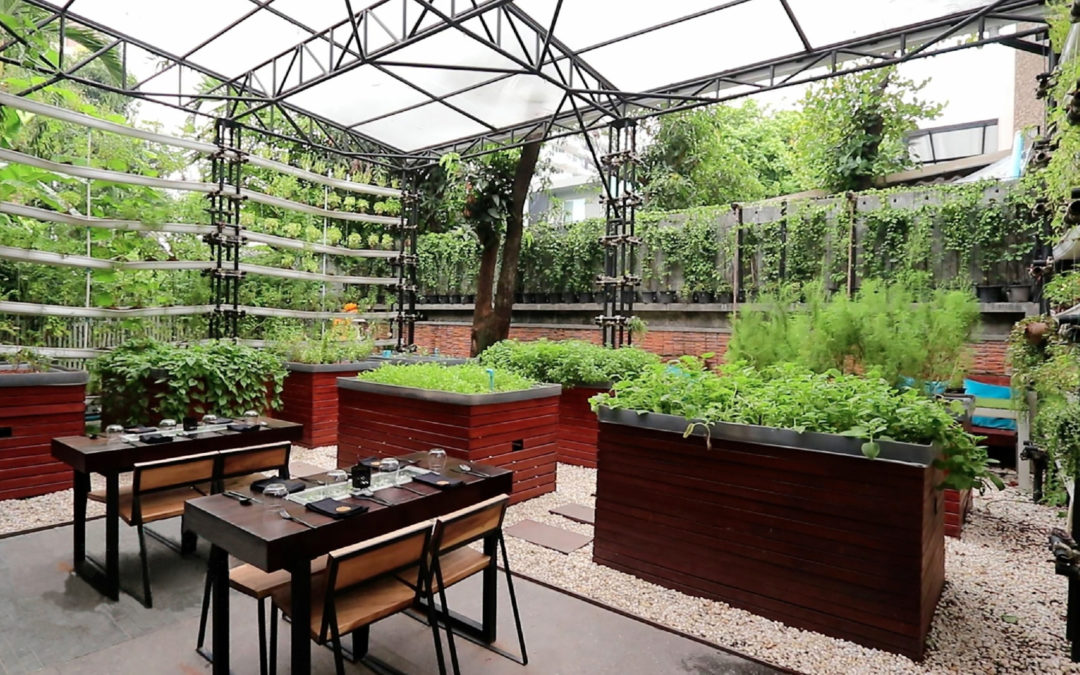As temperatures rise during the summer months, restaurants face unique challenges in maintaining sustainable operations. However, these months also present an excellent opportunity for establishments to reinforce their commitment to the environment by adopting eco-friendly practices. By implementing sustainable strategies, restaurants can reduce their carbon footprint, appeal to environmentally conscious customers, and even save on operational costs. Here are some practical ways restaurants can embrace sustainability during the hot summer months:
1. Optimize Energy Usage
During the hot summer months, energy consumption tends to spike due to increased air conditioning usage. Restaurants can implement energy-saving measures such as:
- Installing Energy-Efficient Appliances: Use Energy Star-rated equipment to reduce energy consumption.
- Regular Maintenance: Ensure that HVAC systems are regularly serviced and operating efficiently.
- Smart Thermostats: Install programmable thermostats to better control cooling systems and reduce unnecessary energy use.
Reducing energy consumption directly lowers utility bills, leading to significant cost savings. Energy-efficient appliances and smart thermostats, though initially requiring investment, offer long-term financial benefits through reduced operating costs.
2. Embrace Compostable Serviceware
One of the most effective ways to reduce waste in restaurants is by using compostable serviceware. Items such as straws, single-use utensils, and take-out containers made from compostable materials can significantly reduce the amount of plastic waste. Compostable serviceware not only decomposes naturally but also enriches the soil, contributing to a healthier environment.
As well, many customers are willing to pay a premium for eco-friendly options, leading to increased revenue. Additionally, cities with strict waste management regulations often offer incentives or lower disposal costs for businesses that use compostable materials.
3. Implement Water Conservation Measures
Water usage also tends to increase during the summer. Restaurants can adopt water-saving techniques like:
- Low-Flow Faucets and Fixtures: Install water-efficient fixtures in kitchens and restrooms.
- Greywater Systems: Reuse water from dishwashing for landscaping and irrigation.
- Staff Training: Educate staff on the importance of water conservation and encourage mindful usage.
Lower water consumption results in reduced water bills, providing immediate cost savings. Implementing these measures also positions the restaurant as a responsible business, attracting eco-conscious customers and potentially increasing revenue.
4. Local and Seasonal Sourcing
Sourcing ingredients locally and seasonally not only supports local farmers but also reduces the carbon footprint associated with transportation. Summer is an excellent time to highlight fresh, seasonal produce in menus, offering customers the best flavors while promoting sustainability.
Purchasing seasonal produce is often cheaper due to its abundance as well. Local sourcing reduces transportation costs and spoilage, further saving money. Promoting fresh, local ingredients can also justify higher menu prices, appealing to customers looking for high-quality, sustainable dining options.
5. Partner with Suppliers Who Use Compostable Packaging
Restaurants can further their sustainability efforts by choosing suppliers that use compostable packaging for their products. By sourcing ingredients and products from environmentally responsible suppliers, restaurants can ensure that the entire supply chain supports sustainable practices. This reduces the overall environmental impact, from the farm to the table.
Partnering with eco-friendly suppliers can enhance a restaurant’s brand image, attracting more customers who prioritize sustainability. This can lead to increased sales and customer loyalty. Moreover, bulk purchasing agreements with these suppliers can result in cost savings.
6. Promote Recycling and Composting
Encourage customers to recycle by providing clearly labeled recycling bins for different types of waste. Additionally, setting up a composting program for food scraps can significantly reduce landfill waste and contribute to soil health.
Implementing a recycling and composting program can also lower waste disposal costs as less waste goes to landfills. Many municipalities offer incentives for businesses that actively recycle and compost, adding to potential savings. Furthermore, showcasing a strong recycling program can enhance the restaurant’s reputation, attracting more eco-conscious patrons.
Sustainability in the restaurant industry is not just a trend; it’s a necessity. By adopting compostable serviceware, partnering with suppliers who use compostable packaging, optimizing energy and water usage, sourcing locally, and promoting recycling and composting, restaurants can make a significant impact on the environment. These practices not only help preserve our planet but also resonate with customers who value eco-friendly initiatives. This summer, let’s make sustainability a key ingredient in our recipe for success.

